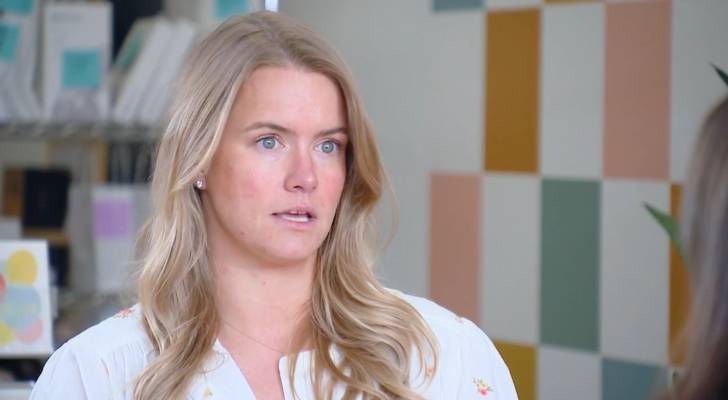
By now, most Americans are familiar with news reporting rising costs of living. Whether at the grocery store, housing, their electricity and even insurance, there seem to be countless ways affordability is top of mind. Now, even as Trump considers a new “baby bonus,” new parents may find their budgets squeezed yet further.
Elizabeth Mahon, owner of the children’s boutique Three Littles in Washington’s Union Market, is raising prices on top-selling items like strollers and car seats.
Her suppliers warned that she should expect an increase in prices, but even she was surprised by the numbers: “It was shockingly high.” Mahon told KATU 2.
The increase is in response to sharp cost hikes tied to tariffs on Chinese-made goods.
Don’t miss
- I’m 49 years old and have nothing saved for retirement — what should I do? Don’t panic. Here are 5 of the easiest ways you can catch up (and fast)
- You’re probably already overpaying for this 1 ‘must-have’ expense — and thanks to Trump’s tariffs, your monthly bill could soar even higher. Here’s how 2 minutes can protect your wallet right now
- Gain potential quarterly income through this $1B private real estate fund — even if you’re not a millionaire. Here’s how to get started with as little as $10
Tariffs drive up baby gear prices
Mahon sells strollers from the popular brand UPPAbaby, whose products will increase by $150 to $300 each — a big hit to families who are already paying for so many baby items, such as diapers, baby formula and more.
In a public statement, UPPAbaby said it had made “every effort behind the scenes to absorb as much of the cost as possible, but some price increases are unfortunately unavoidable.”
Mahon noticed a worrying sign. “We’ve had a huge uptick in sales — which would normally be good,” Mahon said. “But we know that once prices increase, those sales will drop off.” In other words, the sharp increase is not only bad for new parents, but for business owners catering to this demographic as well.
As with many other common goods, most strollers and car seats sold in the U.S. are manufactured in China. This means they are subject to 145% tariffs that the Trump administration levies on Chinese goods.
In response, China has imposed 125% tariffs on American goods. The tariffs are part of a broader U.S. strategy to reduce reliance on foreign manufacturing and address trade imbalances. But for small retailers like Mahon — and the families they serve — the impact has been immediate and costly.
An additional problem: Due to slowed imports and rising costs, empty store shelves could become more common. For families, that could mean life-saving products like car seats and strollers are out of reach.
"If my products become more expensive, then so too do the more affordable options and there are going to be families that are put in the position of using expired car seats or buying secondhand car seats and it’s extremely unsafe because car seats can be in a crash that makes the car seat unusable, unsafe, and it is totally invisible to the naked eye," Mahon said.
Budgeting for a baby in the era of tariffs
According to CNN, stroller prices have climbed by an average of 25%, while infant car seats have seen a 20% increase.
This means that planning ahead and getting creative can help families stay on budget without compromising safety.
- Buy in phases: Spread out expenses over the first year. Focus on what you’ll need in the early months (like a car seat, bassinet, or feeding gear).
You can pause purchasing items for later developmental stages — like high chairs or walkers — until your baby is ready to use them.
Read more: Want an extra $1,300,000 when you retire? Dave Ramsey says this 7-step plan ‘works every single time’ to kill debt, get rich in America — and that ‘anyone’ can do it
- Consider secondhand options: Websites like GoodBuy Gear and Rebelstork provide secondhand baby items at more affordable prices.
That said, experts caution against purchasing used car seats unless you have documentation to verify its history and expiration date (and even those may be hard to verify).
- Join local parent groups: Whether on social media or elsewhere, many parents organize gear swaps or share gently used baby items at little to no cost — a budget-friendly way to access essentials.
If you have local buy nothing community groups, this may be another avenue to score baby gear for free.
-
Track deals: Tools like CamelCamelCamel and Honey can let you know when prices drop online.
-
Try group gifting: Ask multiple loved ones to contribute toward a higher cost item such as a stroller or crib during events like baby showers to help offset the cost.
-
Start a baby budget: BabyCenter estimates first-year expenses for new parents total around $20,384, with nearly $1,000 going toward essential safety gear alone.
Having a dedicated savings plan can help ease the financial shock. Use budgeting apps to plan for monthly baby-related expenses and set savings goals ahead of your due date.
These tips can help new parents stay financially grounded in a time of rising costs without sacrificing safety or quality.
What to read next
- Don’t have the cash to pay Uncle Sam in 2025? You may already be eligible for a ‘streamlined’ handshake with the IRS — here’s how it works and how it can potentially save you thousands
- Robert Kiyosaki warns of a ‘Greater Depression’ coming to the US — with millions of Americans going poor. But he says these 2 ‘easy-money’ assets will bring in ‘great wealth’. How to get in now
- Here are 5 ‘must have’ items that Americans (almost) always overpay for — and very quickly regret. How many are hurting you?
This article provides information only and should not be construed as advice. It is provided without warranty of any kind.